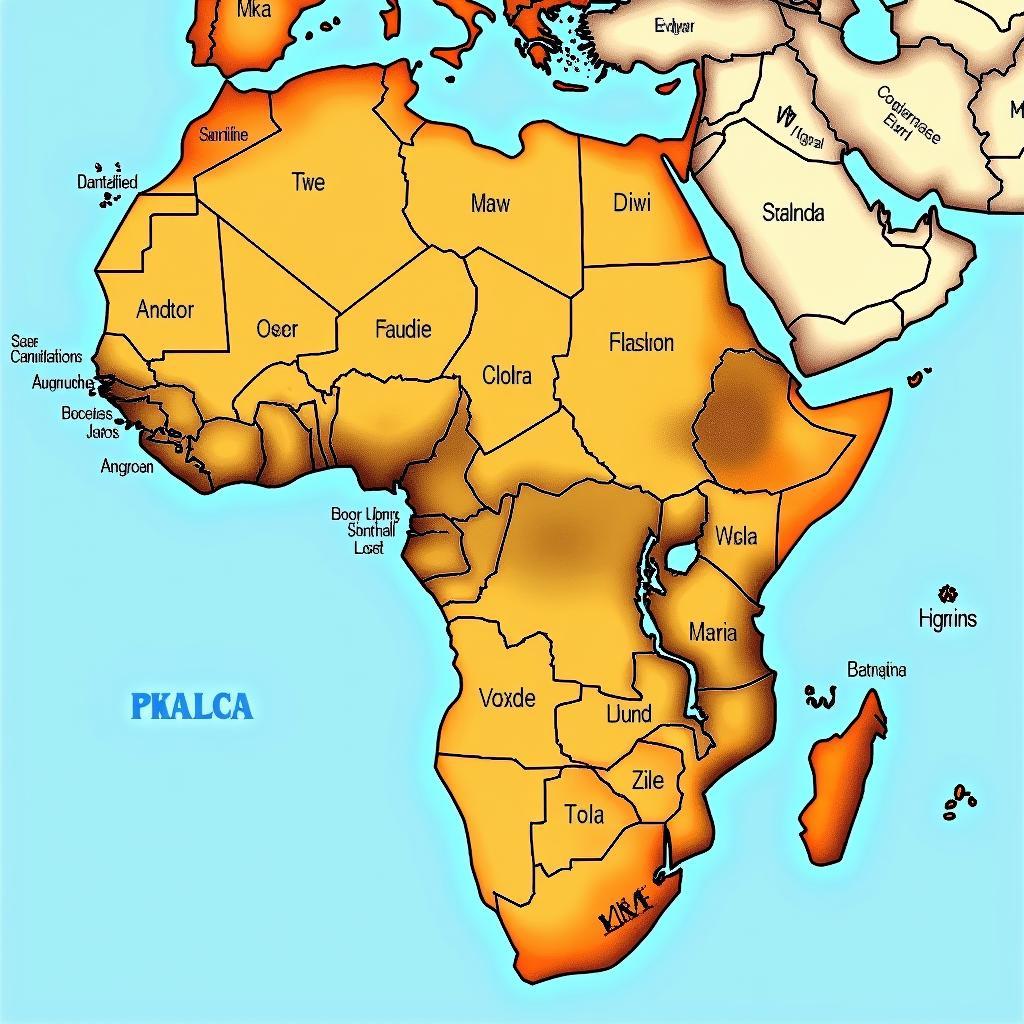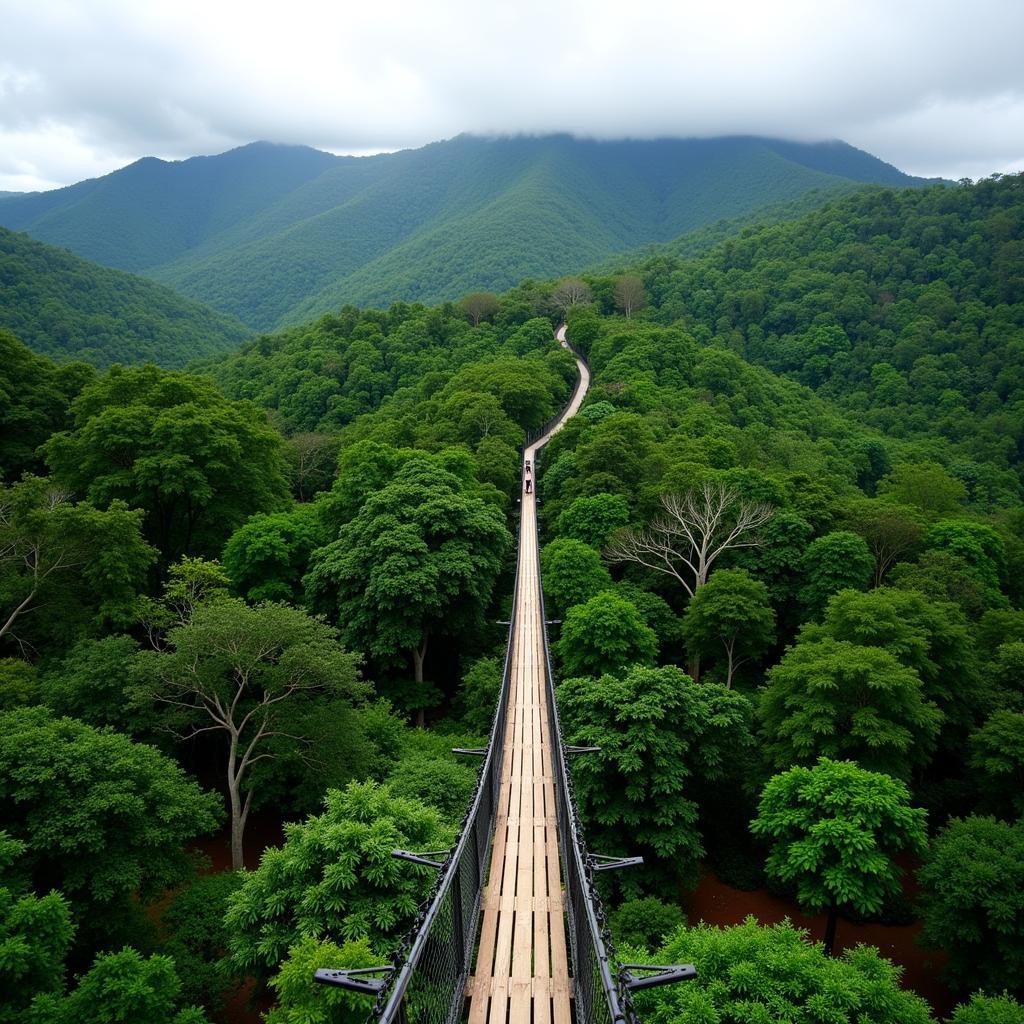The Might and Majesty: A Glimpse into the Lives of African Emperors
Throughout history, the African continent has been home to powerful empires and kingdoms led by visionary and influential rulers known as emperors. These African Emperors, often revered as divine figures, played pivotal roles in shaping the political, economic, and cultural landscapes of their respective domains. From the ancient kingdoms of Ethiopia to the mighty empires of West Africa, the legacy of these leaders continues to resonate today.
Unveiling the Myths: Who Was Considered an African Emperor?
The title “emperor” wasn’t universally used across the continent. While some rulers inherited the title through lineage, others earned it through military conquest and expansion, consolidating their power over vast territories and diverse populations. To truly understand the impact of these rulers, we need to look beyond the title and examine their deeds, influence, and the mark they left on their people and history.
Iconic Figures: Emperors Who Shaped African History
One of the most notable African empires, Ethiopia, boasted a long line of emperors and empresses who traced their lineage back to the biblical King Solomon and Queen of Sheba. Among them, Emperor Menelik II stands out for his role in modernizing Ethiopia and securing its sovereignty against colonial ambitions during the Scramble for Africa.
In West Africa, the Mali Empire flourished under the reign of Mansa Musa, whose legendary pilgrimage to Mecca showcased the empire’s immense wealth and cemented his place as a symbol of African prosperity and Islamic devotion. Another prominent figure is Sunni Ali, founder of the Songhai Empire, known for his military prowess and expansion of the empire’s territories.
 Ancient Map of Major African Empires
Ancient Map of Major African Empires
Beyond Military Prowess: The Multifaceted Roles of African Emperors
The role of an African emperor extended far beyond military leadership. They were patrons of the arts, architecture, and scholarship, fostering intellectual and cultural growth within their empires. For example, the Great Mosque of Djenné in Mali, a UNESCO World Heritage Site, stands as a testament to the architectural grandeur encouraged during Mansa Musa’s reign.
Moreover, African emperors were responsible for maintaining law and order, resolving disputes, and ensuring the well-being of their subjects. They developed complex systems of governance, often incorporating local customs and traditions to effectively rule over diverse populations.
The Enduring Legacy of African Emperors
Although many of these empires eventually declined, the legacy of African emperors continues to inspire generations. Their stories highlight the rich history, cultural diversity, and political complexity of the African continent. By learning about these powerful figures, we gain a deeper understanding of Africa’s past and its lasting impact on the world.
FAQs about African Emperors
Who was the most powerful African emperor?
This is a subjective question with no definitive answer. Many emperors wielded immense power and influence, each leaving their unique mark on history. Mansa Musa is often cited for his wealth and impact on the spread of Islam, while Sunni Ali is recognized for his military achievements and expansion of the Songhai Empire.
Were there any female African emperors?
Yes, several women held positions of power equivalent to emperors in African history. One prominent example is Empress Candace, who ruled the ancient Kingdom of Kush (modern-day Sudan) and is renowned for her military prowess and resistance against the Roman Empire.
What happened to the African empires?
The decline of African empires was often a complex process involving various factors, including internal conflicts, succession disputes, environmental changes, shifts in trade routes, and external pressures like the transatlantic slave trade and European colonialism.
Where can I learn more about specific African emperors?
Numerous books, academic journals, and online resources delve deeper into the lives and legacies of individual African emperors. You can also explore museums and historical sites across Africa that offer valuable insights into these fascinating historical figures.
For more insights into African history and culture, you can check out these articles:
- Adwa: The Victory of African
- African Historical Figures
- African Country Was Formerly Known as Abyssinia
If you’d like to delve into other captivating aspects of African culture, explore these articles:
We encourage you to continue exploring the fascinating world of African emperors and their lasting impact on history. Feel free to reach out if you have any further questions or require assistance in navigating the vast and captivating realm of African history and culture. Contact us at:
Phone Number: +255768904061
Email: [email protected]
Or visit us at our office located in Mbarali DC Mawindi, Kangaga, Tanzania. We have a dedicated customer support team available 24/7 to assist you.

